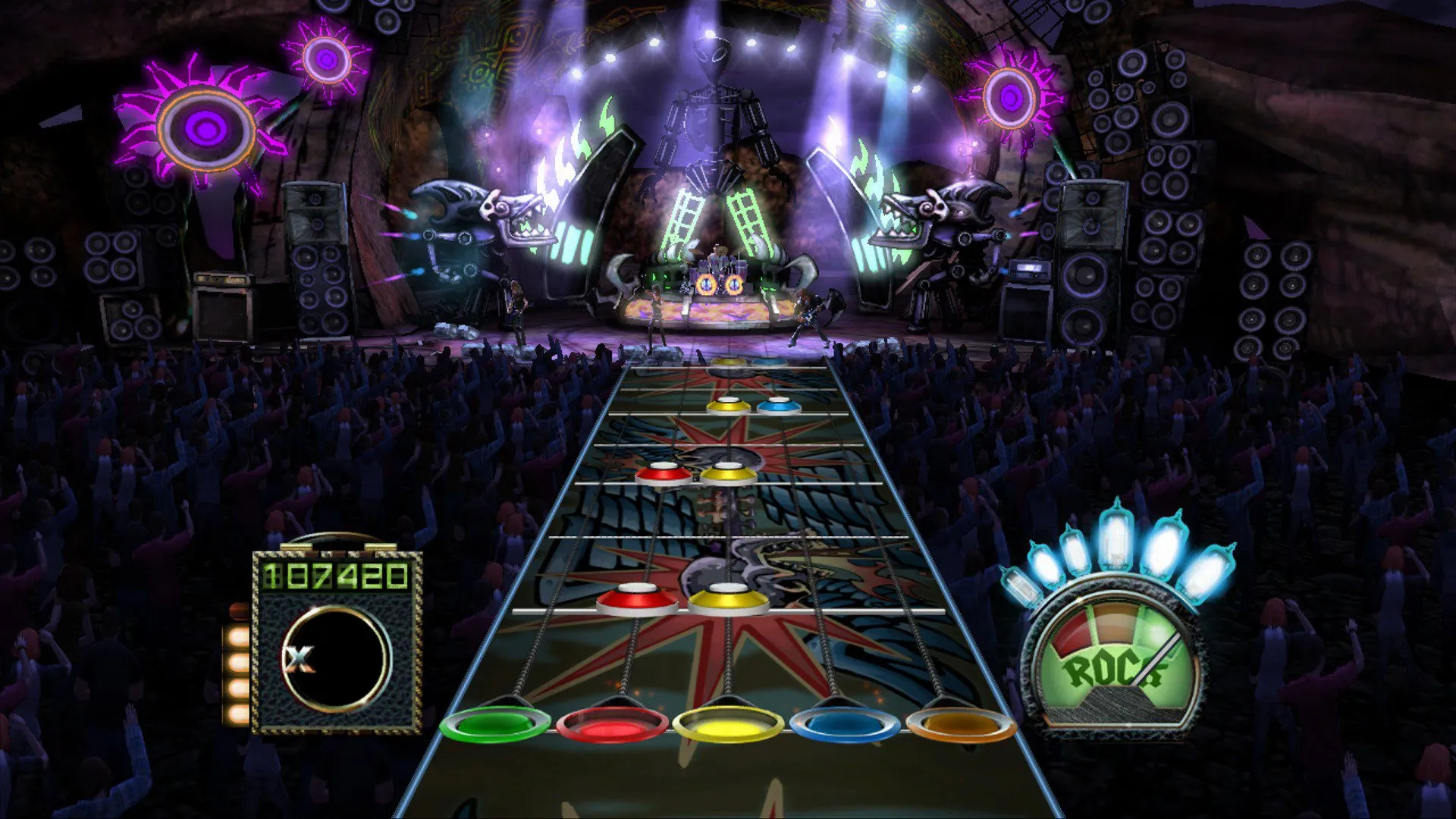Is Guitar Hero the Reason You Never Learned to Play Real Guitar?
In the early 2000s, the video game Guitar Hero burst onto the scene, captivating millions with its engaging gameplay and catchy music tracks. Players found themselves strumming along to their favorite songs using a plastic guitar controller, leading to a cultural phenomenon that reshaped how many viewed music gaming. However, the question remains: has this popular game contributed to a decline in interest in learning to play real guitars?
What is Guitar Hero? It is a rhythm-based game that allows players to simulate playing popular rock songs by hitting colored notes that scroll down the screen. While the game offers an exhilarating experience, it focuses primarily on rhythm and timing rather than actual guitar techniques. Many players find themselves satisfied with their gaming achievements, potentially leading to a lack of motivation to learn a real instrument.
Who is affected by this phenomenon? The impact of Guitar Hero extends beyond casual gamers; it encompasses aspiring musicians who may have been inspired to pick up a guitar but instead found themselves engrossed in the game. As players become immersed in the world of gaming, they might overlook the long-term dedication required to master a real guitar.
When did this trend begin? Guitar Hero was first released in 2005 and quickly gained popularity, especially among younger audiences. As the game evolved, it introduced sequels and spin-offs, further embedding itself into pop culture. However, as gaming trends shifted, so did the interest in traditional music education, leading to a decline in real guitar players.
Where does this leave aspiring musicians? Many players may initially feel a spark of interest in music due to Guitar Hero, but that excitement can fade as they realize the skills required for the game do not translate well to real guitar playing. The game’s mechanics teach players basic rhythm but fail to impart essential techniques such as finger placement, chord transitions, and strumming patterns.
Why is this a concern? The disparity in expertise is notable; even professional guitarists have been known to struggle with Guitar Hero, proving that proficiency in one does not guarantee success in the other. This disconnect can lead to a perception that playing music is simply about hitting notes in time, rather than the intricate artistry involved in playing a real instrument.
How does this affect music education? While Guitar Hero popularized music gaming, it may have inadvertently contributed to a decline in interest in learning traditional instruments. The game offers an immediate sense of accomplishment, contrasting sharply with the long-term dedication required to master a real instrument. Players can easily become satisfied with their gaming achievements, sidelining their desire to learn actual guitar skills.
Moreover, the social aspect of Guitar Hero cannot be overlooked. The game provides a communal experience, allowing friends to gather and compete in a fun environment. This social interaction can overshadow the solitary practice often required to learn a real instrument, leading to a preference for gaming over music education.
Despite these challenges, there are alternative learning tools available, such as Rocksmith, which utilizes real guitars to teach players. This game offers a more direct connection to actual guitar playing, allowing users to apply what they learn in a practical setting. In contrast, Guitar Hero remains a fun but ultimately superficial experience when it comes to real music education.
The nostalgia factor associated with Guitar Hero also plays a significant role in its lasting popularity. Many players have fond memories tied to the game, which can lead them to prioritize gaming over pursuing actual music education. As a result, the cultural impact of Guitar Hero may have altered perceptions of what it means to “play music,” leading some to view gaming as a valid substitute for traditional music education.
As market trends continue to evolve, the rise and fall of music rhythm games like Guitar Hero reflect changing consumer interests. While the game may not teach real guitar skills, it has the potential to spark interest in music, potentially leading some players to eventually pursue learning an actual guitar.
In conclusion, while Guitar Hero has undoubtedly brought joy and entertainment to countless players, it raises important questions about the future of music education. The game’s focus on rhythm and timing, coupled with its engaging social experience, may deter many from picking up a real guitar. Ultimately, the challenge lies in finding a balance between enjoying music gaming and fostering a genuine desire to learn and appreciate the art of playing a musical instrument.






Leave a Comment